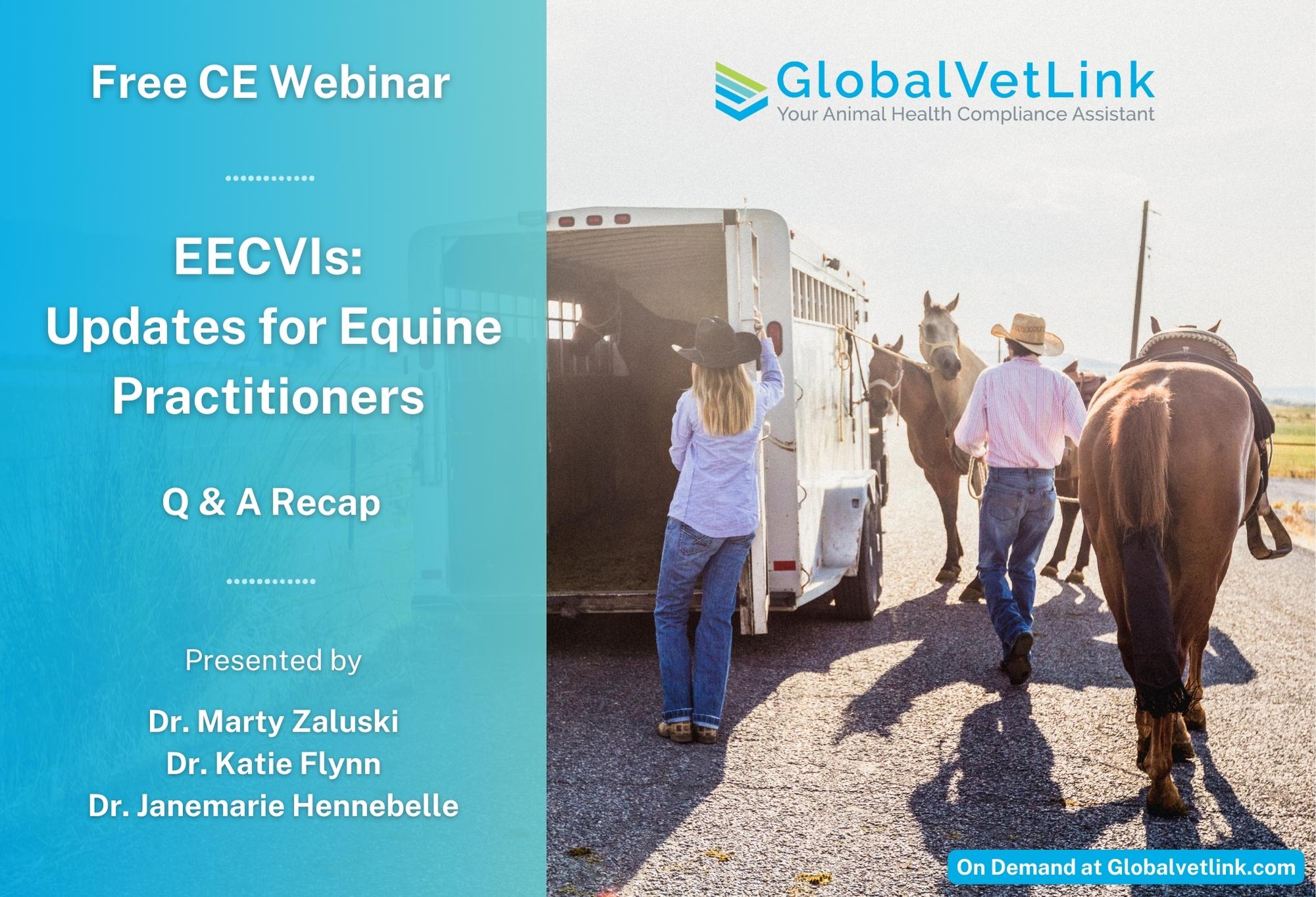Vermont only participates in and accepts the EECVI program from May 1st to October 31st.
Any horse needing a traditional 30-day Certificate of Veterinary Inspection could participate in the EECVI program. However, if there are any questions, it is best to check with the destination state.
That is correct. You will need to wait until the EIA (coggins) is resulted and confirmed negative before finalizing the EECVI. The system will not allow you to add a pending EIA (coggins) to your EECVI.
That is correct, the owner will need to write a permit to the destination address and then one back to the origin.
You are always welcome to contact the Kansas state animal health official to check their trip permit preferences. However, the easiest thing to remember is the trip permit is intended for each origin and each destination along the route. If you are stopping in Kansas and the horse is unloading from the trailer, it’s best to have a trip permit from Montana to Kansas, then Kansas to Kentucky. This ensures disease outbreaks can be reported, and the owner can be notified if one was to occur.
Many additional states plan on participating but are not able to at this time due to the requirement of a legislative rule change period. We will share information as additional states join the program in the future. If you have questions about your state participating, please contact your state animal health official.
If the horse needs to off-load into a non-participating EECVI state, they would need to obtain a 30-day Certificate of Veterinary Inspection from their veterinarian.
The states that are currently participating in the EECVI program include: Alabama, Arizona, Arkansas, California, Florida, Georgia, Idaho, Indiana, Kansas, Kentucky, Louisiana, Maryland, Minnesota, Missouri, Mississippi, Montana, New Mexico, New York, North Carolina, Oklahoma, Oregon, Rhode Island, South Carolina, South Dakota, Tennessee, Texas, Utah, Vermont*, Virginia, Washington, West Virginia and Wyoming. Check out the EECVI map here.
Each horse will need to have its own EECVI, which allows for accurate traceability in the event of a disease outbreak.
